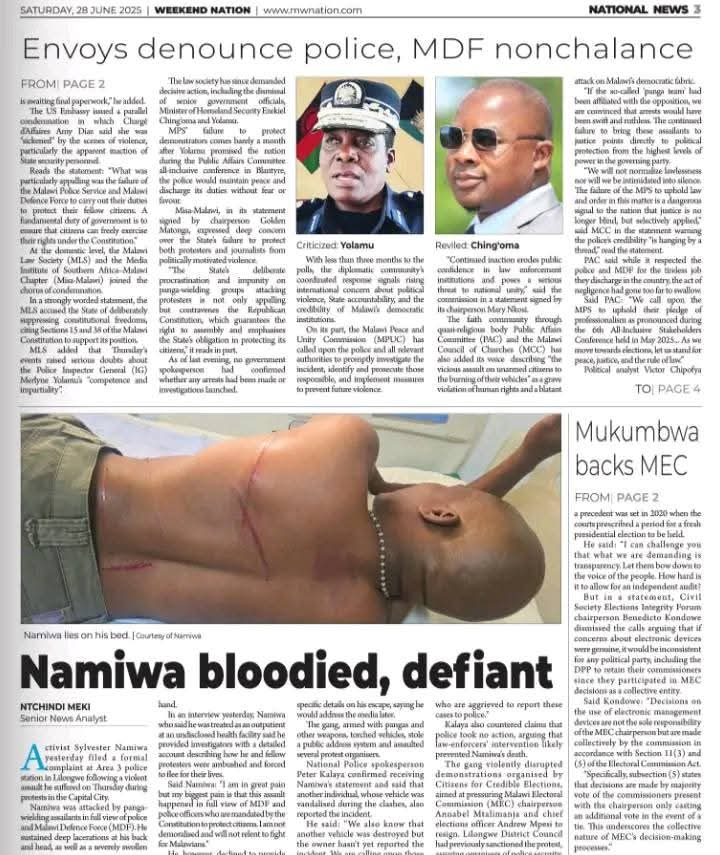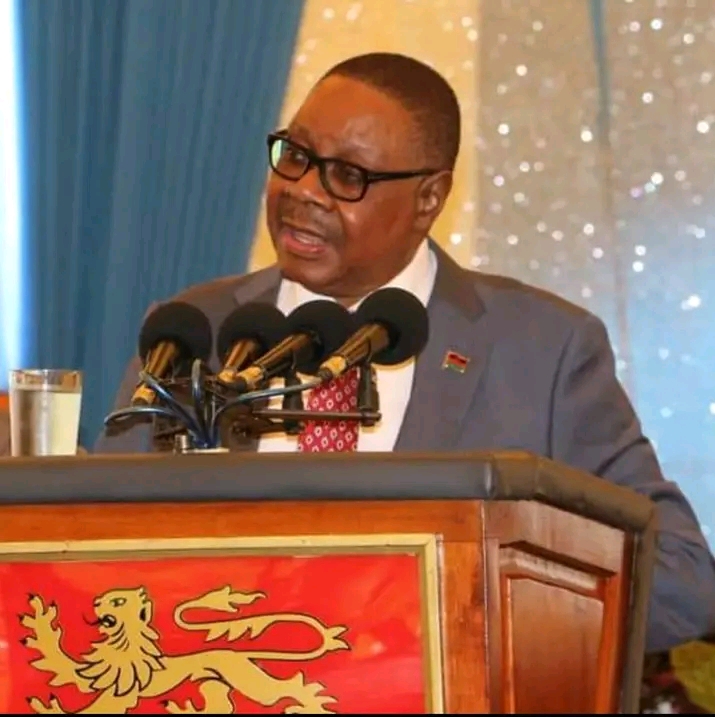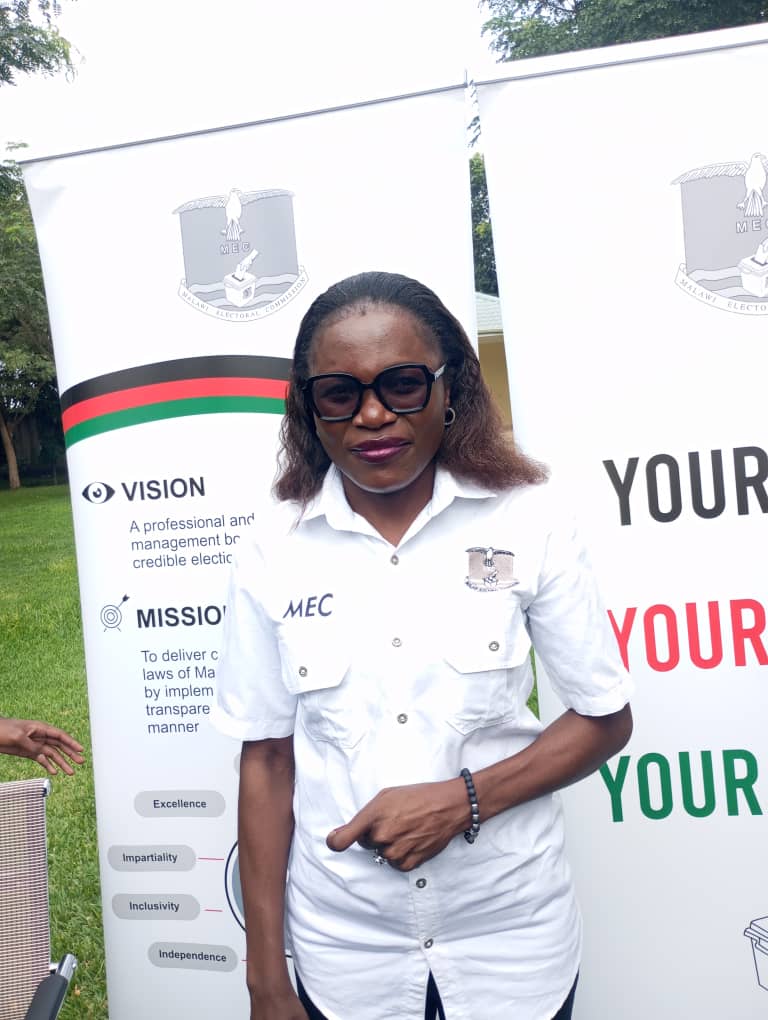By Burnett Munthali
Each year, Malawi celebrates its Independence Day and Democracy Day with pomp and ceremony.
Government officials take to the podium to extol the virtues of freedom, unity, and the hard-won rights of Malawians.
The Constitution is often quoted, with leaders claiming to uphold its provisions that guarantee civil liberties, human rights, and the rule of law.
These moments are supposed to symbolize national pride, democratic maturity, and collective progress.
Yet, behind the fanfare lies a glaring contradiction that continues to erode public trust in these very ideals.
While leaders speak passionately about democracy, those who exercise its very essence—activists, whistleblowers, and dissenters—are brutalized in plain sight.
Just recently, activist Sylvester Namiwa was viciously assaulted during an anti-Smartmatic protest, with the Malawi Police and Defence Force standing by without intervention.
This incident occurred despite the Constitution clearly guaranteeing freedom of expression, assembly, and personal security.
Worse still, it happened around the same time national leaders were giving speeches about protecting and cherishing these democratic freedoms.
The irony is painful and dangerous.
How can a government that celebrates democracy one day condone violence against its citizens the next?
The disconnect between words and actions is not just disappointing—it is unconstitutional.
It is a betrayal of the sacrifices made by those who fought for Malawi’s freedom and democracy.
The Constitution of Malawi, particularly in Sections 38, 39, and 42, protects the right to assemble peacefully, express opinions, and be protected under the law.
When these rights are denied, especially with state complicity or negligence, it signals a breakdown in democratic governance.
True democracy is not measured by how loudly leaders praise it on public holidays, but by how boldly they defend it in times of dissent.
Until the government acts to hold security forces accountable and protect its citizens regardless of their political views, its public celebrations ring hollow.
Malawians deserve more than empty speeches—they deserve consistent action grounded in the Constitution.
As long as activists are beaten while the Constitution is quoted, Malawi remains trapped in a cycle of constitutional hypocrisy.
The path forward must involve aligning state rhetoric with genuine protection of democratic rights.
Only then can we say, with honesty, that we are truly celebrating democracy.




